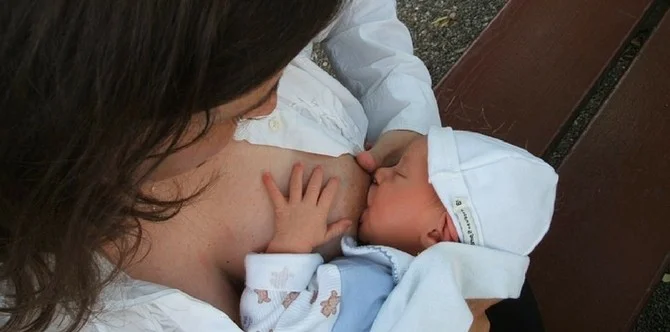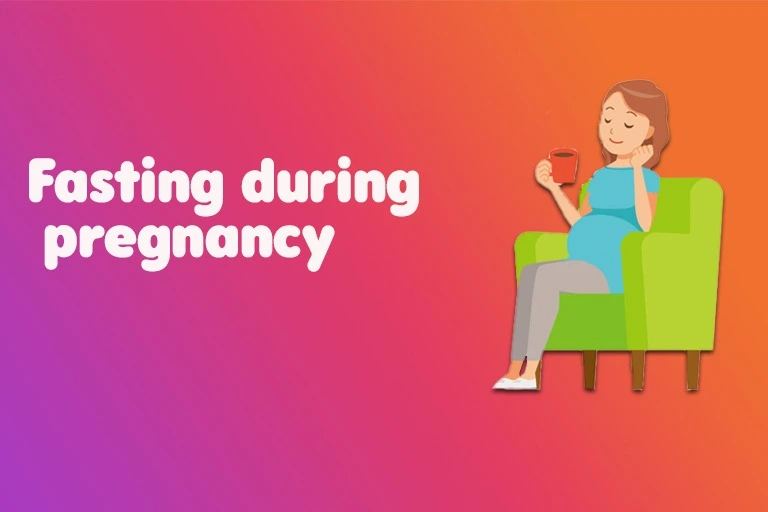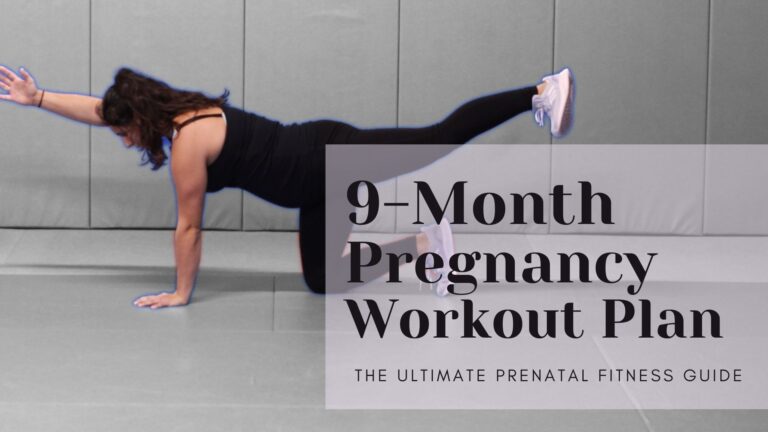All You Need to Know About Breastfeeding While Periods
Breastfeeding while periods is not a big deal. Learn all you need to know about your menstrual cycle and period while breastfeeding. Find out how affects your Breastfeeding while periods. While Breastfeeding is a beautiful experience, there may be concerns and questions, particularly when you start your period.
Everything you need to know about nursing during your period is covered in this article, including how it affects your menstrual cycle and milk supply and how to handle any difficulties that may arise.
Breastfeeding While Periods
Many women wonder if Breastfeeding affects the return of their period after giving birth. Lactational amenorrhea is the natural delay of menstruation that occurs while breastfeeding. Wearing your baby off Breastfeeding or introducing solid foods, your period may return.
The hormones responsible for milk production can also suppress ovulation, which delays your period’s return. The hormone prolactin helps with milk production but also inhibits menstruation. It’s important to note that Breastfeeding while periods may not always be directly linked, as some women may resume their periods while still breastfeeding.
One theory is that the nutrients in breast milk may affect your milk supply since periods affect magnesium and calcium weeks postpartum. If you are using Breastfeeding as a form of birth control, it’s essential to understand how lactational amenorrhea works, as it is not foolproof. Remember that just because you haven’t gotten your period while breastfeeding, it doesn’t mean you can’t get pregnant.
How does Breastfeeding while periods?
Breastfeeding your baby can have a significant impact on your menstrual cycle. At the same time, some women may notice that their period returns sooner when they are breastfeeding, and others may experience irregular periods or a delay in the return of their first period.
This is because of the hormonal alterations that take place throughout Breastfeeding, which can affect the timing of ovulation. If you are fully breastfeeding and providing enough milk for your baby, your period may be delayed for several months postpartum.
However, once your baby starts to wean or if you increase your milk supply by pumping more milk during your period, you may notice your period returns. Knowing about Breastfeeding and seeking support and information from resources is essential.
Breastfeeding while periods, you may experience a temporary decrease in your breast milk supply due to the hormonal fluctuations that occur. However, this is usually a temporary change, and your milk production should return to normal once your period ends.
Suppose your milk supply is consistently decreasing during your period. In that case, you should explore strategies to maintain your supply, such as frequently nursing or pumping milk for your baby. The return of your menstrual period may also indicate that you are fertile again and could become pregnant.
It is essential to consider birth control options if you are not ready for a new pregnancy while breastfeeding your baby.
Changes in Milk Supply During Your Period
Many women get their first postpartum period around 6-8 weeks after giving birth, but the timing can vary. The effects of Breastfeeding on fertility are complex and can influence when your period will return.
Some women experience a drop in milk supply around the time their period starts, possibly due to hormonal changes. The days of your period may also affect milk production, with some women noticing a drop in supply during this time. Nighttime Breastfeeding can also play a role in maintaining breast milk production during your period.
Calcium and magnesium levels can also impact milk supply. Some women find that increasing their calcium intake during their period can help increase milk production.
On the other hand, the hormonal changes that come with your period can affect the composition of your breast milk, possibly making it taste slightly different for your baby. This is usually not a cause for concern, and breastfed babies can typically adjust to the changes.
The effects of Breastfeeding on fertility vary from person to person, and some women may not experience a return of their period for months or even years while the baby is breastfed. This is due to the hormone prolactin, which inhibits the release of the hormones responsible for ovulation.
When your period returns, it may be a non-ovulatory period at first, meaning you are not yet fertile. It’s essential to be aware of your breastfeeding practices and how they may influence your menstrual cycle.
First Period After Giving Birth:
It is common for women to wonder when they can expect their period to return after giving birth. For some women, menstruation may start as early as five to six weeks after giving birth, while for others, it may take months or even years before they menstruate again.
During the first few months after giving birth, as the body adjusts to the changes, it is normal for the periods to be irregular. It is important to note that the baby’s nursing habits influence ovulation and menstruation.
If a woman is exclusively breastfeeding and her baby is nursing frequently, she may experience a delay in the return of her period. This is because Breastfeeding suppresses ovulation due to high levels of prolactin, the hormone responsible for milk production.
However, as the baby starts solid foods and breastfeeding sessions decrease, ovulation may occur, leading to the return of menstruation.
Once a woman’s period returns, she may notice specific changes in her menstrual cycle. Some women may experience more extended periods, while others may have a decrease in blood flow. It is also common for women who are breastfeeding to have less milk after their period returns, as the hormonal changes can affect milk production. The baby may observe a change in the taste of breast milk.
If a woman does not want to get pregnant soon after giving birth, it is essential to consider birth control options to prevent unwanted pregnancies.
Women breastfeeding and experiencing their first period after giving birth should ensure they get an adequate daily dose of 500 – 1000 mg of calcium to maintain healthy calcium levels. It is also crucial for women to continue to provide support for their breastfeeding journey, even as they experience changes in their menstrual cycle.
For those who wish to start weaning their baby off Breastfeeding, it is essential to reduce milk removal to prevent engorgement and mastitis gradually. Remember to seek information and support from healthcare providers or lactation consultants to navigate this transitional period.
FAQs
What if My Period Returns While I’m Still Breastfeeding?
If your period returns while you’re still nursing, your milk production may temporarily decrease, but it usually increases rapidly again. Your breast milk continues to be healthy and nourishing for your child.
Are periods heavier after Breastfeeding?
As your body rebalances hormones after nursing, your periods may become thicker or lighter. Women perceive things differently, and postpartum fluctuations in menstrual flow are common.
Is irregular periods while breastfeeding normal
Indeed, because of hormonal changes, irregular periods are standard after Breastfeeding. Breastfeeding raises prolactin levels, which may disrupt your menstrual cycle and decrease regular ovulation.
How to do Breastfeeding while periods?
It is expected to be breastfed during this period. To encourage milk production, stick to regular feeding patterns and drink plenty of water. See a medical professional for tailored guidance on handling any pain or worries.
Wrap up
For many women, nursing throughout their menstruation is a regular aspect of life after giving birth. A good breastfeeding experience can be secured by being aware of any potential changes in your menstrual cycle, including erratic periods or variations in milk production. Breastfeeding while periods is not very dangerous; it happens sometimes, only sometimes. Remember to keep yourself informed, share any worries with your doctor, and continue to nurse your child to show them love and nourishment.







